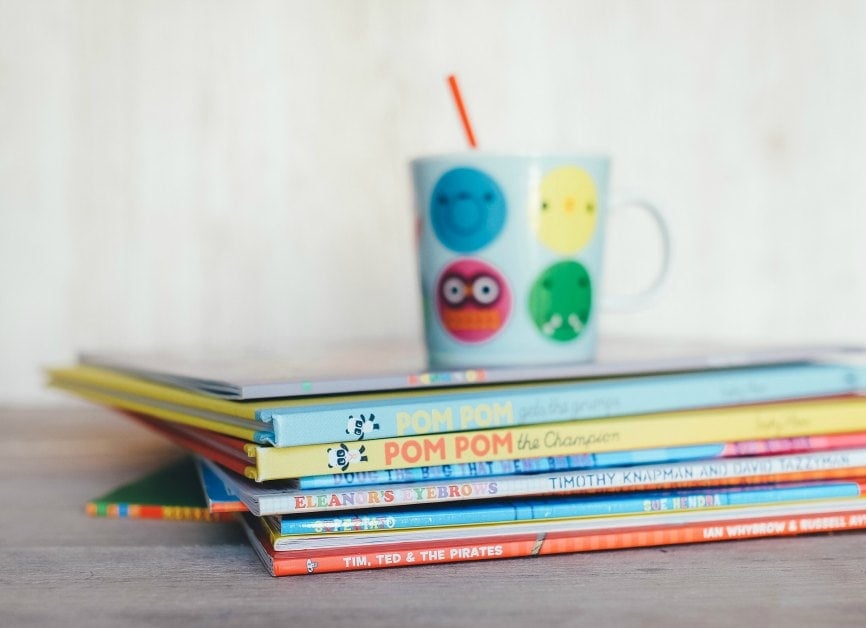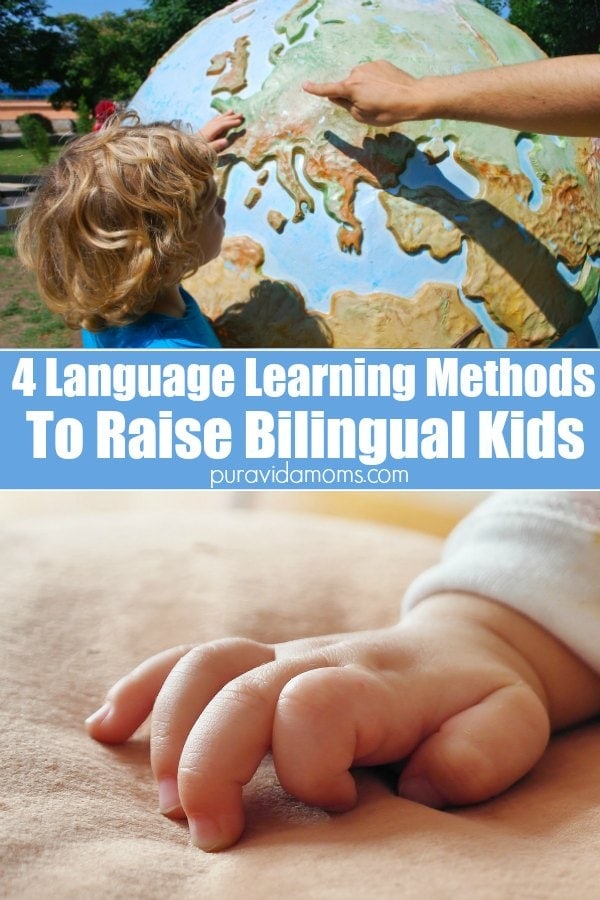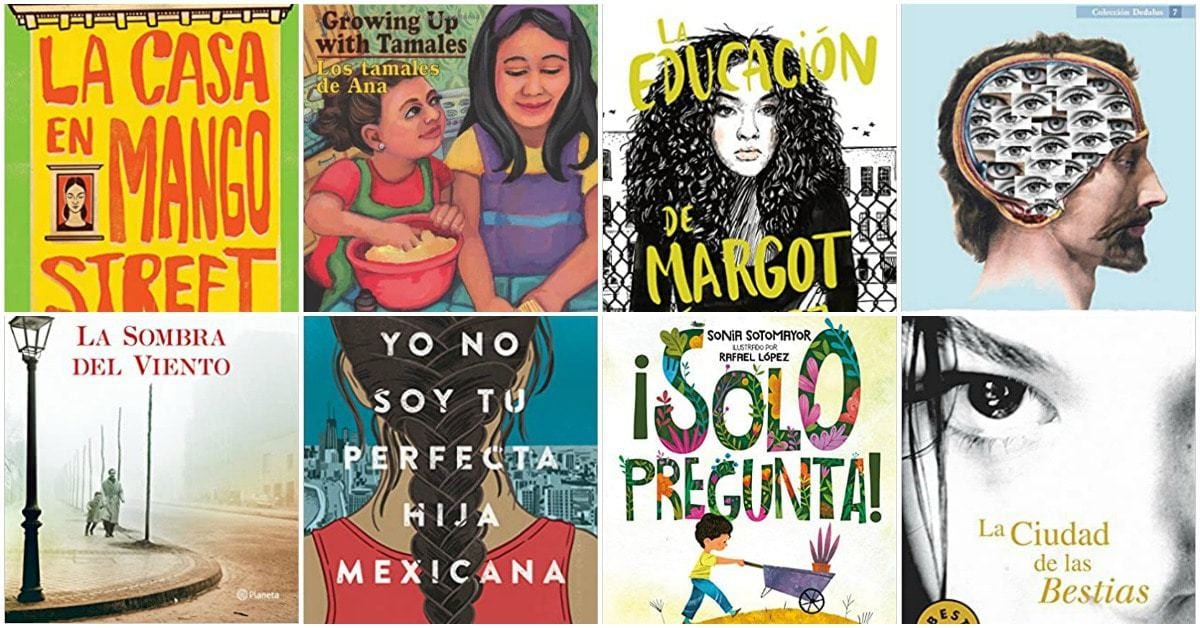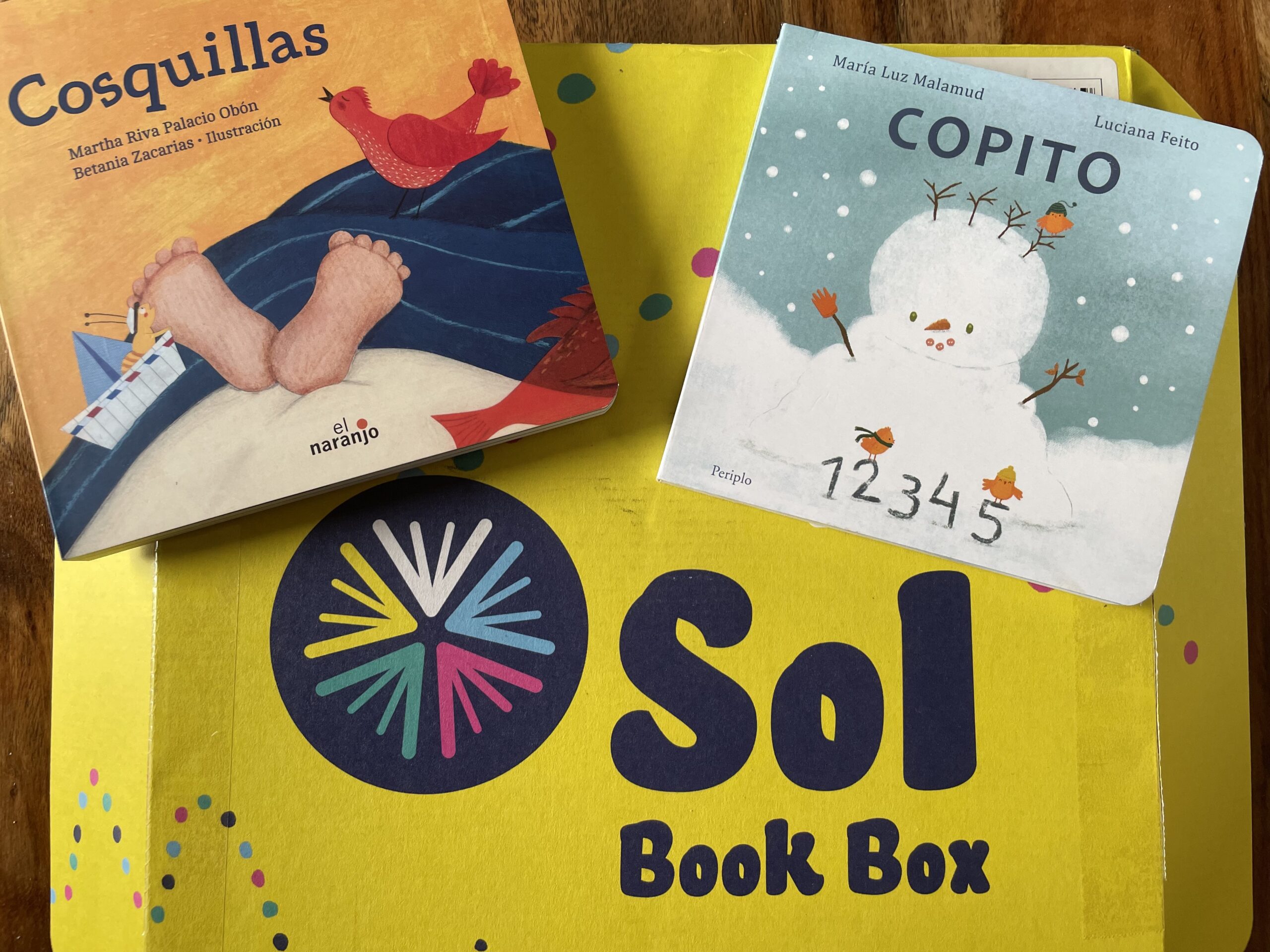4 Best Language Acquisition Methods For Bilingual Families
This post may contain affiliate links.
There’s no single way to raise a bilingual child. Anyone who tells you otherwise is misinformed. 😉
And thank goodness there are tons of ways to raise a bilingual kid- bilingual parents need all the help we can get to find success!
During your journey of raising bilingual kids, you’ll use many, many, many language acquisition techniques to meet your end goal, and it’s important to understand all the ways bilingual kids are made. I’ll outline the top four methods for raising bilingual kids in this post. Remember- raising bilingual kids is a learning process, and language ability comes in all shapes and sizes.
The most important thing to remember is that language learning is super important- and totally doable! You just gotta keep working at it. Some people think that the ages 0-2 are the most critical period to acquire language and that after that there is no hope. Not true! Successful learning happens at all ages, and learning a new language is a gift we can give our kids that will last a lifetime.
Need help? I’ve got 100 Spanish language resources for your bilingual kids right here!
My Language Learning Story
The second I got pregnant with my oldest daughter, I knew that I wanted to raise bilingual kids. I just had no idea how to do it!
Not only was I bilingual at that point in my life, but I was also a bilingual public school teacher.

I had spent 11 years in the classroom working first as a foreign language teacher and then with bilingual high schoolers, ultimately creating a successful program called Spanish for Native Speakers. I spoke almost exclusively Spanish all day with my students, and then again at home.
That’s because my husband is Costa Rica, and when we met, he didn’t speak a word of English (well, unless you count “beer.”) We have always communicated with each other in Spanish- it’s our love language. Once we both became fully bilingual, we began mixing languages and speaking a lot of Spanglish. It was fun!
Still- with all of my experience as a Spanish language learner, I knew that raising bilingual kids didn’t just happen on its own. Kids become bilingual because of their parents who make amazing and tough choices every single day to make sure their kids learn multiple languages from birth.
What I didn’t know was how to meet my bilingual goals for my future child, or even what the options were for raising bilingual kids. Through tons of research and trial and error, I found that there are really 4 ways to raise bilingual kids. I want to outline them for you here as you start your bilingual journey.
After you’ve chosen your first method from the list below, you’ll need to set a bilingual goal for your child, create a short-term and long-term bilingual plan, and then activate community support to meet your goals. But first- the methods!

Method #1- One Parent One Language (OPOL)
Join me over at my favorite place- Instagram.
The One Parent One Language method is pretty much what it sounds like. In a two-language household, each parent speaks a different language. In the case that each parent speaks a different language, each parent could speak their native language.
In some houses, one parent might be bilingual and the other is not, and so the bilingual parent would speak the language the other parent doesn’t. This helps with language development in two languages simultaneously.
In the case where both parents are bilingual, each parent may choose which language to speak to the children. The Linguistic Society has a great article on how this helps children develop language skills.
For a discussion on how One Parent One Language plays out in homes you can watch this video with me and bilingual expert Heather of Books del Sur:

Method #2- Minority Language At Home (ML@H)
Minority Language at Home is the method that I use with my kids 90% of the time. The idea behind Minority Language at Home is that in the greater society a common language, or majority language, is generally spoken (in the United States, that language is English) and so at home, a different language is spoken.
In our case, we speak Spanish exclusively at home, and English is learned outside of the home. Not an easy feat- but our children are totally bilingual so far, at the ages of 4 and 6. This method greatly increases the amount of time Spanish is spoken in our home.
Here’s a video interview that outlines exactly what I do with my kids and how it’s hard sometimes:
This video is a super candid chat with another mom who uses Minority Language at Home and talks about why she is so passionate about it! (Note- this method isn’t always easy but is super effective).

Method #3- Situational Bilingualism
Situational bilingualism is one of four language learning methods that many parents use when they are the only bilingual parent in their household, or when parents are raising bilingual kids but are not bilingual themselves.
The basic idea behind situational bilingualism is that children learn different languages depending on which situation they are in. For example, a young child who goes to his nanny who only speaks Spanish learns early on that when he’s with mom, he hears English, or when he is with the nanny, he hears Spanish.
Older children who are in bilingual schools or other language courses learn quickly that Spanish is spoken, for example, in the classroom, while English may be spoken during specials. The ACSD has a great article on how students acquire language in this manner.
You can also watch a video with myself and Heather and a homeschool mom who uses situational bilingualism to teach her kids Spanish.
Method #4- Time and Place Bilingualism
Time and place bilingualism is a method where the family decides when and where they will speak each of their family languages. This is one of the most creative theories of language acquisition (at least I think so!).
One example of this is making bath time or storytime in Spanish, and the rest of the bedtime routine is in English. Or only playing games in Spanish at home is another example.
Another example is speaking Spanish on the weekends and English during the week. Some families switch language by week, or by month. Others change languages depending on what room of the house they are in.
This method of bilingualism gives a ton of flexibility to the family, especially in times of transition. For example, when we were moving from Costa Rica back to Denver, we used time and place bilingualism to transition us back to ML@H.
Guess what- another video that explains what this method can look like in real life:
So what’s next? Now that you have a quick overview of each of the types of bilingualism available to you as a parent, you need to set that plan in motion. A couple of notes:
It is NEVER too late to start raising bilingual children- you just have to decide to do it and go for it!
It’s hard to raise a bilingual child all on your own- so we’ve created a Facebook group to support you at any point in your journey
Make sure to solidify your bilingual plan by setting a bilingual goal for your child, and then creating a plan for success.
Additional bilingual parenting resources from Pura Vida Moms:
- Big List Of Free Spanish Language Printables For All Ages
- 10 Spanish Kid’s Songs- The Ultimate Playlist
- Resource Guide for Spanish Immersion Students During School Closures
- How To Watch PBS Kids Spanish Programs
- Huge List of Disney Songs For Kids
Don’t forget to pin me to your Bilingual Parenting Board!


Christa Jimenez
Welcome! I’m Christa, a Spanish teacher married to a handsome Costa Rican and mother of two bilingual daughters. We’ve spent over 25 years living in and traveling to Costa Rica with our daughters, and this website is my love letter to all things Costa Rica- and to bilingual parenting too. You can read my full story here. Thanks for stopping by!







